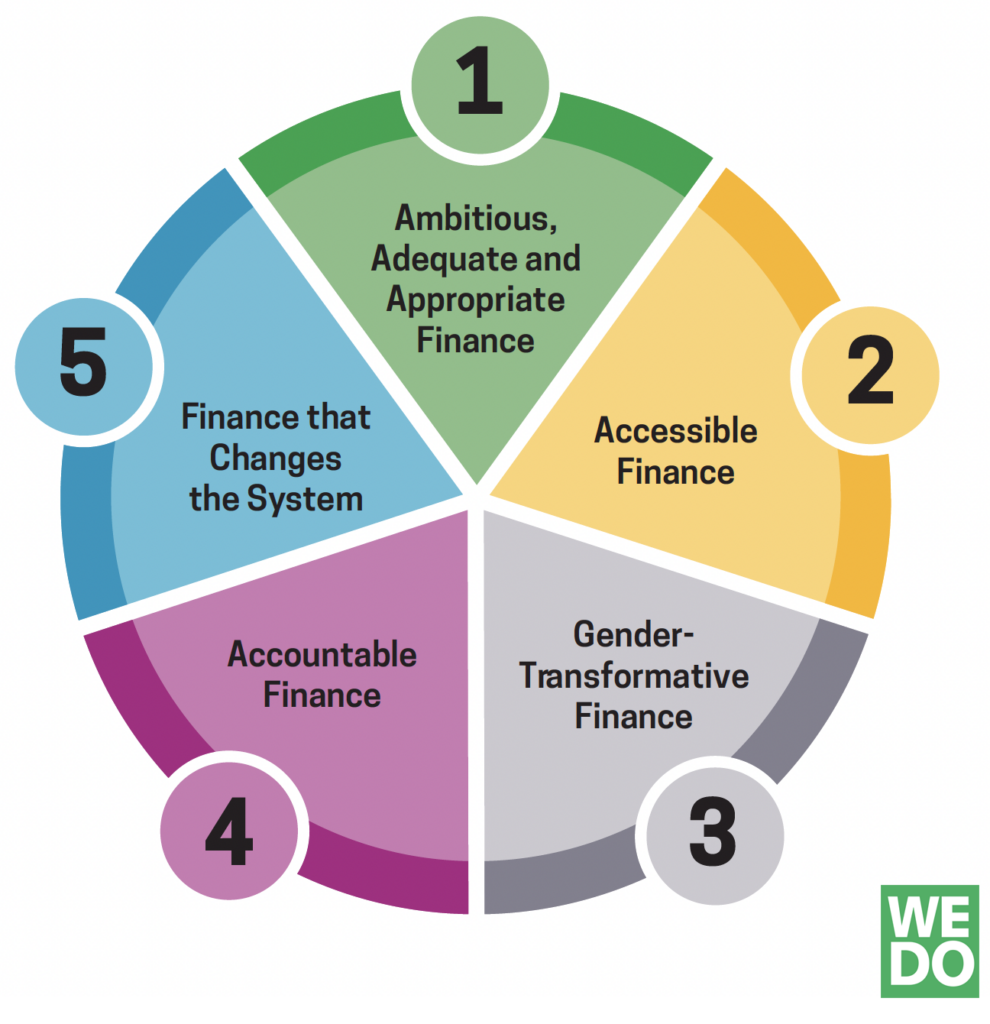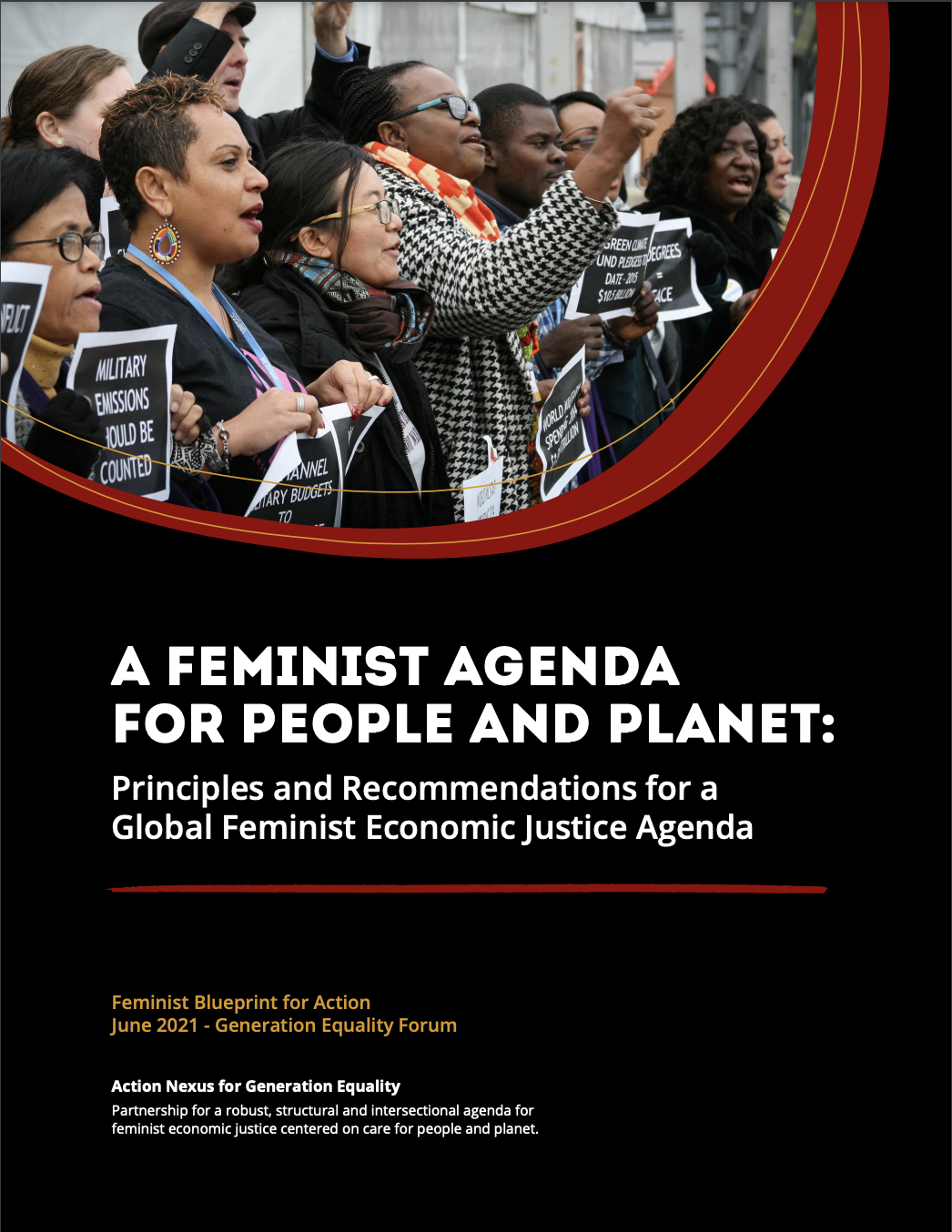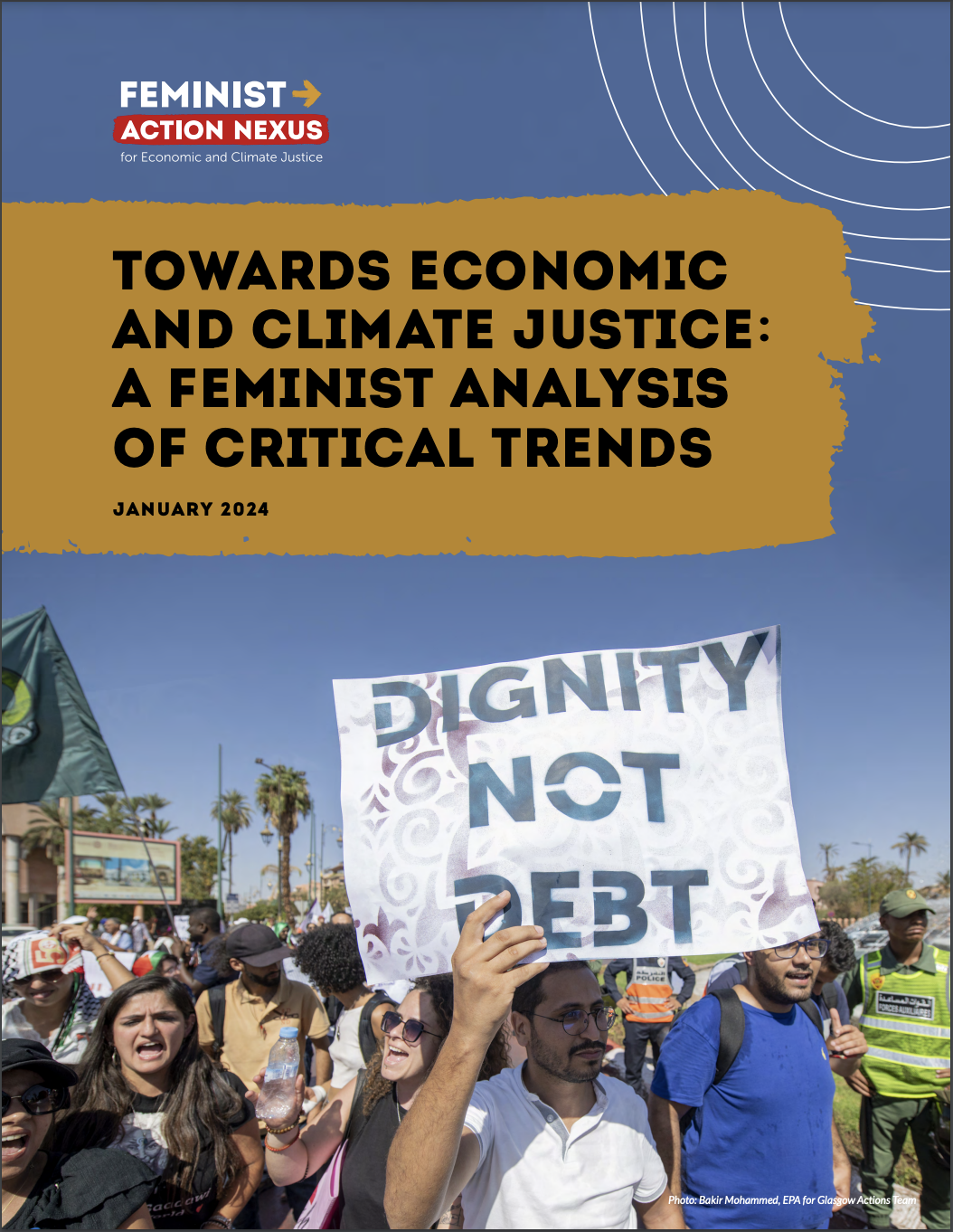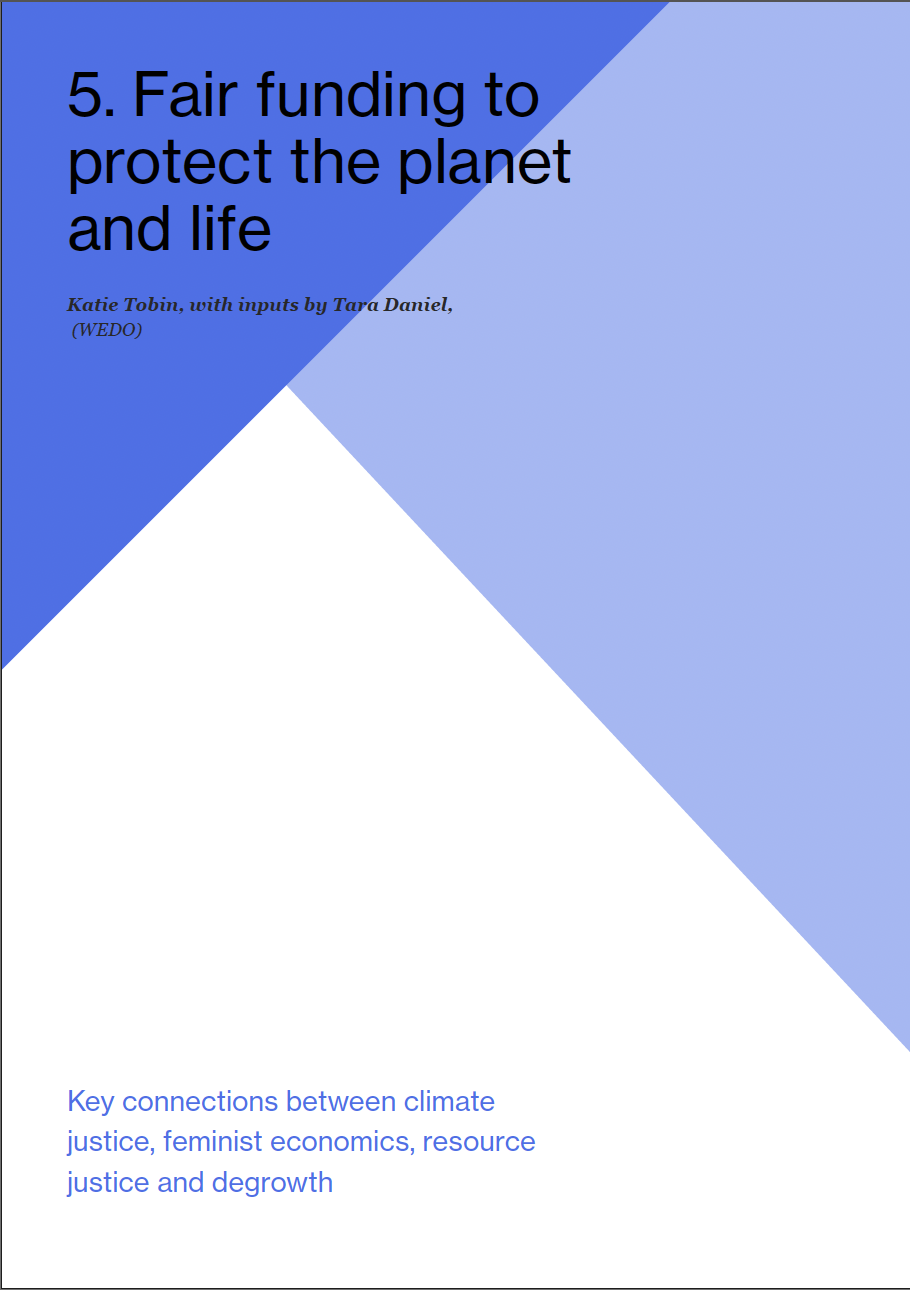OVERVIEW
As the climate crisis intensifies, climate finance—the funding required for mitigation, adaptation, and responding to loss and damage from climate impacts—is imperative. Yet climate finance will fail to address the magnitude of the crisis, and can even cause harm, when human rights and gender equality are not centered in its design and delivery.
WEDO advocates for gender-responsive climate finance as a step toward our vision: transforming the current climate finance architecture into a feminist one that fully funds and centers solutions that embed human rights and climate justice while divesting from harm and false solutions.
What is Climate Finance?
Climate finance funds climate action. While climate finance can be provided through public, private, and philanthropic sources, a key focus in the UN Framework Convention on Climate Change is climate finance flowing from developed countries to developing countries through bilateral and multilateral channels, sometimes with consideration of private finance that is mobilized by public finance. Providing this climate finance is an obligation in recognition of the historical emissions of greenhouse gases by developed countries and that developing countries now have to follow low-emission development pathways.
Feminist Economic Justice and Feminist Climate Finance
A systemic and structural transformation of our global economic systems finance flows is urgently required to radically transform our approach to economic growth, our systems of production and consumption, and the rules that govern our macroeconomic and multilateral systems.
Within this vision, “feminist climate finance” encompasses the multifaceted ways that climate finance will ultimately need to be transformed to align with our feminist values and fund feminist solutions. It is concerned with both how much money is flowing from the Global North to the Global South, as well as the quality and distribution of this finance.
Climate finance delivered within our current global architecture—one based on debt and austerity—will not allow us to meet the Paris Agreement goals. Despite the obligation to provide climate finance and the context of an escalating debt crisis in the Global South, much of climate finance is delivered as loans. Thus, climate finance pledges must go hand in hand with structural change, aligning finance flows with demands for feminist economic justice that move from a system centered on extraction and unlimited growth to one centered on care and social protection.
Five Dimensions of Feminist Climate Finance

Read our brief on the 5 Dimensions of Climate Finance
Watch our short Instagram Video series on 5 dimensions of Feminist Climate Finance
LEARN MORE:
Key Events & Webinars
|
|
Advocacy & Analysis
 Our blueprint for feminist and economic justice aims to encapsulate a broad economic justice agenda towards an equitable, peaceful and healthy planet for all. It outlines paths to achieve structural transformation of international financial and trade architectures, to simultaneously eradicate poverty and guarantee ecological sustainability. |
 Building on the blueprint, our 2024 feminist analysis of critical trends towards feminist economic and climate justice highlights the significant gap between the contemporary global order and the vision put forward by the Feminist Action Nexus and our allies. To begin to determine how far away we are from this vision—and therefore how to begin to achieve it—this report assesses progress and challenges in seven key areas, corresponding to our key demands. |
 This chapter, “Fair funding to protect the planet and life,“ of the 2025 Coherence Index report “Fair funding for a future of hope,” sets out an agenda for systemic transformation, encompassing fiscal justice, debt cancellation, historical reparations for colonialism and slavery, demilitarisation of economies, degrowth, and justice in the use of resources. This chapter, “Fair funding to protect the planet and life,“ of the 2025 Coherence Index report “Fair funding for a future of hope,” sets out an agenda for systemic transformation, encompassing fiscal justice, debt cancellation, historical reparations for colonialism and slavery, demilitarisation of economies, degrowth, and justice in the use of resources. |



